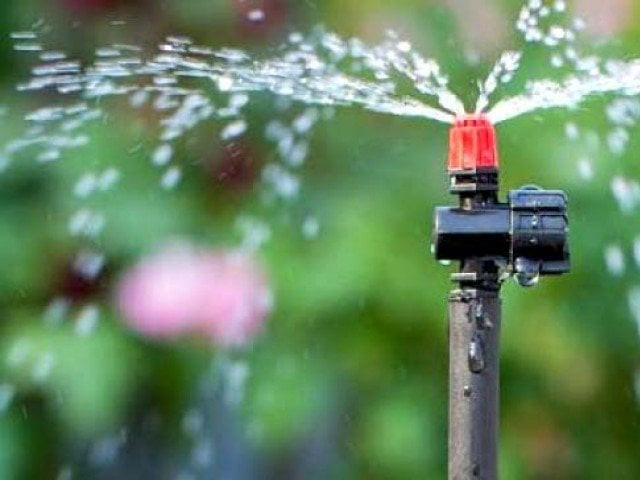K-P plans Rs9b project to conserve water
Govt also conserving rare species of buffalos and goats

This was disclosed by the Khyber-Pakhtunkhwa (K-P) Agriculture and Livestock Minister Mohibullah Khan who noted that the conservation of water and soil, especially in areas which receive the most rain, will be prioritised by the government for development.
The ultimate aim, Mohibullah stated, was to strengthen these sectors to make the province self-sufficient in wheat, rice and other agriculture production.
Speaking to APP, he said that all arid and semi-arid areas of the province, apart from waterlogged areas, would be included in this mega project.
He said that the K-P government has chalked out a comprehensive plan for the pavement of 20,000 watercourses over the next five years to provide uninterrupted water supply to farmers, especially at the tail-end in the province.
In the first 100-days of the provincial government, he said that the incumbent Pakistan Tehreek-e-Insaf (PTI) government had devised an inclusive strategy to pave around 12,000 to 20,000 watercourses in the province by 2023. This, he hoped, would address the problem of water wastage while irrigating lands.
This project, he said, would cost an estimated Rs15 billion to complete.
Once complete, however, it would only constitute a fourth of all the 76,000 watercourses in the province.
Mohibullah said that agriculture remains the economic backbone of the country with as many as 85 per cent of the population and industries relying directly or indirectly on the agriculture sector.
Over the next five years, the agriculture minister said that their prime focus would be on strengthening agriculture research and extension services, livestock animals health disease control, breeding and genetic resource conservation programmes, veterinary and agriculture education, human resource development, provision of special incentives in terms of seeds and fertilisers to farmers.
He said that they have already launched a conservation programme to save the rare breed of Azakheli buffaloes in the Malakand division keeping in view the high potential of its milk’s production and meat.
Mainly found in Khwazakhella and the Madyan areas of Swat, the population of these buffaloes had witnessed a fall in the aftermath of the devastation wrought by the militancy in Swat from 2008-2009 and then by the 2010 floods.
Mohibullah further said that the department is also working on a plan to conserve and protect the endangered sheep of Damani in Dera Ismail Khan, the Waziri sheep and the Saanen goat.
K-P, he said, was blessed with both cold and warm water resources and offers immense opportunities for fish farming in the 6,100 kilometre-long rivers and streams and some 6,400 hectares of natural lakes and 54,600 hectares of dams and reservoirs.
To tap this water resource potential, the livestock and fisheries minister said that they will set up trout villages in the Malakand and Hazara divisions given their climatic conditions for conservation and breeding of this precious aquatic species.
Before the PTI took over, he claimed, there were only 15 fish farms which reared the coveted trout fish. Over the past five years when PTI ruled K-P, he said that this number had increased to 200.
Over the course of their incumbent government, he said that they plan to establish a further 200 model fish farms and hatcheries to boost fish farming and its production.
Conservation only way to ward off water crisis
Mohibullah said that the government was also cognizant of the single greatest threat to river life, the dumping of raw sewerage into watercourses, canals and rivers. In this regard, he said that they were working on bringing a holistic approach, especially one which sees the cooperation of the community to curb this practice.
Cultivatable diversity
The minister said that the agriculture department’s scientists had prepared 19 new seed varieties for different crops, including fruits and vegetables, which had been approved by the provincial seeds council. These seeds, he said, would facilitate farmers apart from enhancing their per-acre-yield and effectively combat various diseases.
Moreover, he said that special awareness and educational programmes for farmers were being launched through a myriad of ‘field days’, seminars, workshops to inform farmers about new seeds, changing climatic conditions and others issues by agri experts. The government is also employing the use of short messaging systems (SMS) on regular basis to get the word out to farmers.
The Minister urged farmers, horticulturists and fruits growers to take full advantage of these facilities and adopt the latest technologies to achieve autarky in food.
Published in The Express Tribune, January 7th, 2019.













COMMENTS
Comments are moderated and generally will be posted if they are on-topic and not abusive.
For more information, please see our Comments FAQ